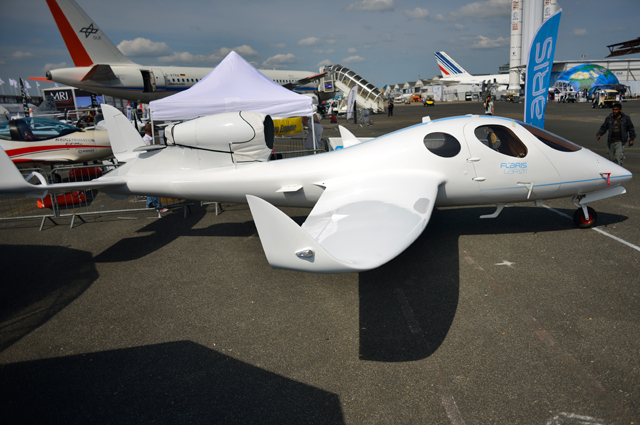Polish engineering company Metal Master is gearing up for the first flight of its Flaris LAR-1 high-speed personal jet in the third quarter, and plans to unveil its next business aircraft programme in 2018.
The five-seat, single-engined LAR-1 was launched four years ago, marking Metal Master’s entry into the business aviation sector. “It has always been our plan to produce a family of aircraft, and we are making good progress,” says company founder Rafal Ładziński.
From its base in Podgórzyn, southwest Poland, Metal Master has three other clean-sheet designs in various stages of development, he says. The line-up includes the LAR-2 – a project still on the drawing board and being kept tightly under wraps; the LAR-3 – a utility aircraft in a more advanced stage of development, although no launch date has been set – and the LAR-4.

BillyPix
“This is our next project,” says Ładziński. He describes the LAR-4 as a “revolution in personal, long-distance transport”, with range of 3,500nm (6,500km) and seating for five passengers and crew. “The LAR-4 will be large, comfortable and functional, and will cost significantly less to buy than similar-range business jets on the market today,” Ładziński says. “This is a whole new category of aircraft, and will be targeted at owner-flyers and commercial operators.”
A prototype is being manufactured in Podgorzyn, and Metal Master hopes to take the wraps off the new design at next May’s European Business Aviation Convention and Exhibition in Geneva. “This is an ideal venue to showcase the aircraft,” says Ładziński, as the event is the largest business aviation industry gathering in Europe. “We hope to fly the LAR-1 to the show too.”
Priced at less than $2 million, the Williams International FJ33-5A-powered personal jet features semi-elliptical, detachable wings and a safety parachute system in the nose. It has a projected range of 1,350nm and a cruise speed of 400kt (740km/h), and can take off and land on grass airstrips and small runways with a length 250m (820ft).
The all-composite LAR-1 will initially be validated under the Polish civil aviation authority’s S-1 experimental aircraft designation, with deliveries set to begin next year. “This should take around 50 flying hours,” Ładziński says of the validation. “Then we will work with EASA to get the aircraft certificated to European CS-23 standards. We hope to get this approval in 2020."
Source: Flight International


























